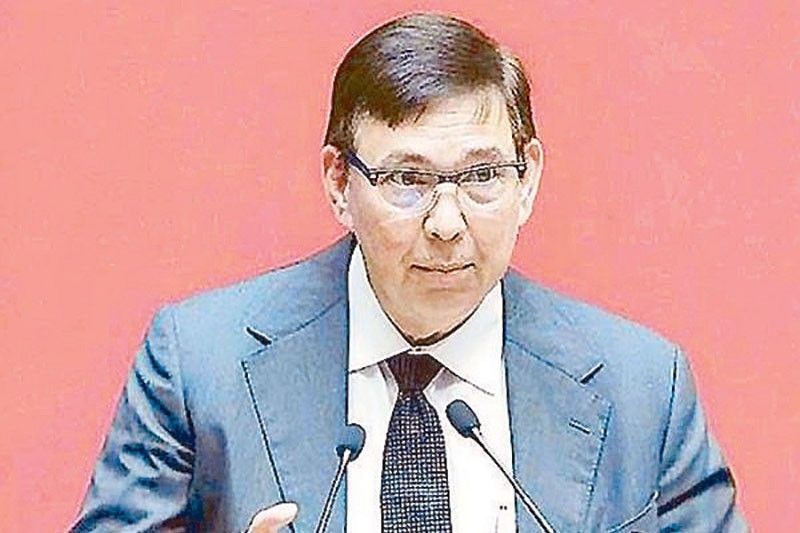Recto sees ‘realistic’ 6-6.5 percent growth for Philippines
MANILA, Philippines — Finance Secretary Ralph Recto is looking at a “more realistic” economic growth of at least six to 6.5 percent for this year, with medium-term economic expansion likely to be tempered as well. On the sidelines of the Economic Journalists Association of the Philippines induction of officers on Thursday, Recto said there is […]


MANILA, Philippines — Finance Secretary Ralph Recto is looking at a “more realistic” economic growth of at least six to 6.5 percent for this year, with medium-term economic expansion likely to be tempered as well.
On the sidelines of the Economic Journalists Association of the Philippines induction of officers on Thursday, Recto said there is a need to come out with more realistic targets not only for this year but for the medium term as well.
“If we project a very high GDP (gross domestic product), you’ll also project a very high revenue and if you miss it, your deficit will increase and your debt-to-GDP will also increase,” Recto told reporters.
The finance chief is now looking at six to 6.5 percent GDP expansion for 2024.
This is significantly lower than the 6.5 to 7.5 percent GDP target set by the Cabinet-level Development Budget Coordination Committee (DBCC) in December last year.
“I think six percent is a good number. Aspirational, I think we should hit for 6.5 percent. Realistic is six (percent), but we will endeavor to hit 6.5. That’s how I’m looking at it,” Recto said.
“Nevertheless, we are pushing the BIR (Bureau of Internal Revenue), the Customs and the Treasury to collect more. We will adjust the GDP downward, but we will ask the BIR and the BOC (Bureau of Customs) to do more,” he said.
The DBCC held its meeting yesterday, but Budget Secretary and DBCC chair Amenah Pangandaman said no statement would be released yet.
The DBCC also held off its usual media briefing after the meeting.
Recto clarified that his six to 6.5 percent GDP target is solely the stand of the Department of Finance and will be subject to discussion with the other members of the DBCC.
The finance chief argued that the 7.5 percent GDP aspiration is “too high.”
“We hit 5.6 percent last year, the highest in the region. But what’s the headline? Philippines fails to hit the target. I would rather have a headline that says the Philippines hits the highest in the region at six or 6.5 percent and also hits its target,” Recto said.
He added that the DBCC would also evaluate and make adjustments on the goals under the medium-term fiscal framework (MTFF), which was crafted during the start of the Marcos administration.
Recto said he wants the MTFF to also be “more realistic, tempered, but still aspirational.”
Under the MTFF, GDP growth for 2025 until 2028 should be at 6.5 to eight percent.
Recto emphasized that the rest of the parameters in the MTFF are also being looked at including revenues and expenditures.
“That is also up for review. I guess all of the President’s hard work and that of the previous economic managers will probably bear fruit next year when we expect more foreign direct investments to come in,” he said.
“By then, we can probably adjust those figures again upwards. We still have two hot wars ongoing, geopolitical tensions in this part of the world, but then there’s so much opportunities and optimism in the Philippines,” he said.
Initiated by former finance secretary and now Monetary Board member Benjamin Diokno, the MTFF aims to attain macro-fiscal stability while remaining supportive to economic recovery.
The framework also targets to consolidate resources and utilize for maximum benefit and high multiplier effects for the economy.
The DBCC earlier said there remains to be challenges for 2024 including elevated inflation because of the onset of El Niño, external price pressures from geopolitical tensions and the imposition of export bans in other countries.
Economists also warned that the economy may expand at a slower pace this year as elevated interest rates and lagging state spending dampen investments.














